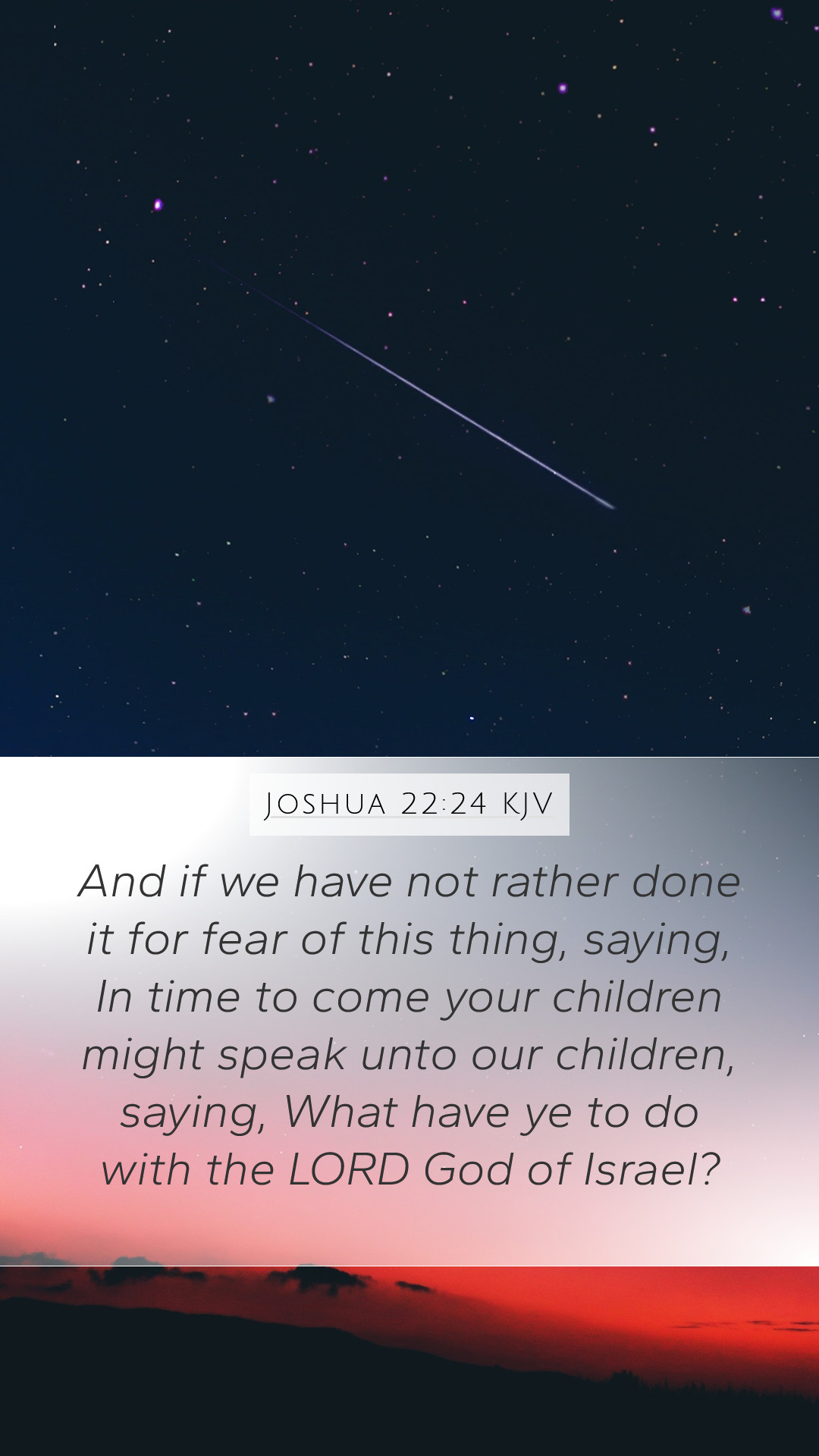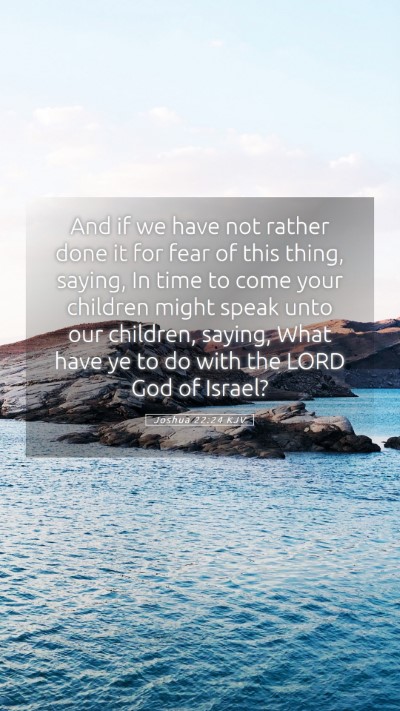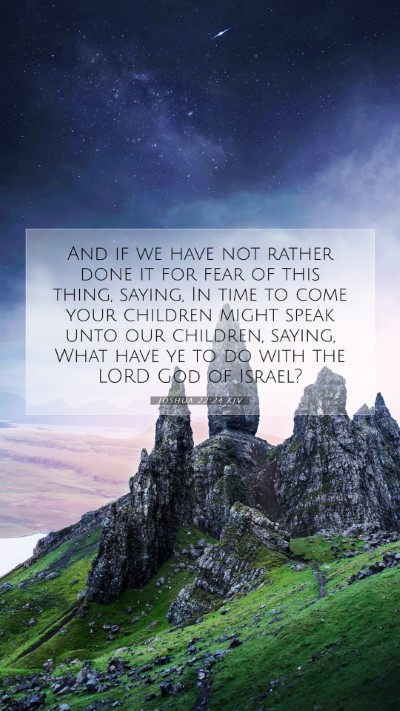Bible Verse Meaning and Interpretation: Joshua 22:24
Joshua 22:24 states: "And if we have not rather done it for fear of this thing, saying, In time to come your children might speak unto our children, saying, What have ye to do with the Lord God of Israel?"
This verse arises from a pivotal moment in the history of Israel, involving the tribes of Reuben, Gad, and the half-tribe of Manasseh. After the Israelites had settled in the Promised Land, these tribes established their homes east of the Jordan River. Concerns arose among the other Israelite tribes regarding their continued loyalty to Yahweh and the implications of their separation from the rest of the nation.
Insights from Commentaries
-
Matthew Henry:
Henry emphasizes the importance of maintaining unity among the tribes of Israel. He notes that the fear of future generations misunderstanding their relationship with God prompted the eastern tribes to deny any intent of separation from the worship of Yahweh. Their actions were meant to prevent any future conflicts based on misinterpretations of their status as members of God's chosen people.
-
Albert Barnes:
Barnes explains that the concerns expressed in this verse reflect a broader apprehension regarding identity and commitment to God. The tribes feared their children might question their faith and lineage if they did not clearly communicate their intentions through the building of an altar. This act was not meant to replace the altar at Shiloh but rather to serve as a witness to their faithfulness to the covenant with God.
-
Adam Clarke:
Clarke highlights the social and familial aspects inherent in Israelite culture. He mentions that the reference to children serves as a reminder of the importance of teaching and preserving the faith across generations. The tribes aimed to ensure that their descendants recognized their connection to the Lord and did not perceive them as outsiders to the covenant.
Key Themes and Reflections
The core theme of Joshua 22:24 revolves around the preservation of faith and identity within a community that is divided by geography yet unified in purpose and covenant. The concern for future generations reflects a deep understanding of the challenges of spiritual legacy and the importance of teaching one's children about God.
Application to Daily Life
In applying this verse to modern life, individuals can reflect on their roles within families and communities. The responsibility to cultivate faith, instill values, and communicate the significance of a relationship with God is vital. As believers engage in Bible study lessons, they can draw parallels from this passage regarding the importance of teaching and sharing their understanding of Scripture with the next generation.
Related Bible Cross References
- Deuteronomy 6:4-7 - Emphasizing the duty to teach God's commandments to children.
- Psalm 78:4-7 - The importance of telling the next generation about the works of the Lord.
- Ephesians 6:4 - Instruction for parents on how to bring up children in the practice of faith.
- Joshua 4:6-7 - The significance of memorials to remind future generations of God's faithfulness.
- 1 Peter 2:9 - Describing believers as a chosen people, emphasizing identity in God.
Conclusion
Joshua 22:24 serves as a reminder of the critical need for faithful communication within families and communities regarding our relationship with God and His commands. Through Bible verse commentary, we gain valuable insights that can aid in Bible study insights and promote a deeper understanding of Scripture. Engaging with this verse encourages believers to reflect on their commitment to fostering a rich heritage of faith that can withstand the tests of time.


